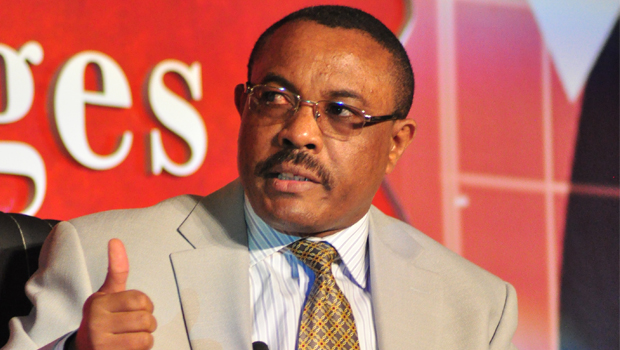
Ethiopian Prime Minister Hailemariam Desalegn, who succeeded Meles Zenawi as leader of the Horn of Africa country in September 2012. There was concern over how that transition in power would be received by political factions and the public, but thus far peace has prevailed. Photo credit: Addis Fortune
In late August 2012 I wrote about uncertainty and apprehension surrounding the death of Prime Minister Meles Zenawi, who ruled Ethiopia unchallenged for 21 years. Hailemariam Desalegn, Meles’ deputy, was a relative political unknown and no one agreed on how effective he would be in running the country, or in keeping stability in a notoriously unstable part of Africa.
In September Ethiopia’s Parliament confirmed Hailemariam as Prime Minister, and I am happy to report that the first month of his rule has passed without major incident, opposition, or outbreak of violence. Christian Science Monitor characterized the peaceful transition of power in Ethiopia as a “democratic milestone.” A ruling party official noted (on condition of anonymity) “[T]he country only has history of about 20 years of democracy…at this critical time without the highest government post, everything was peaceful.”
What likely helped is that Meles established a succession plan of-sorts in 2010, when he chose Hailemariam as his deputy. The ruling Ethiopian People’s Revolutionary Democratic Front planned to phase out its leadership by scheduled 2015 elections, including Meles if he had survived to that time. The process is described as meritocratic, and investors and strategic partners like the U.S. are likely breathing a sigh of relief that conditions in Ethiopia have not deteriorated, and hoping it continues to stand up against nearby Somalia.
For that matter, if the U.S. wants to practice what it preaches, it should seize the opportunity to contribute to democracy promotion activities in Ethiopia.
The extent of true democracy in Ethiopia remains in serious question. Opposition is carefully controlled, freedoms of speech and expression limited. There is only one opposition member of Parliament- out of 547. The party that Meles led to power in a military coup in 1991 seems unrivaled for influence or control of the country.
The transition of power without violence is certainly an important step in the right direction for Ethiopia. But it seems clear to me that quite a few more significant steps toward open society should follow.